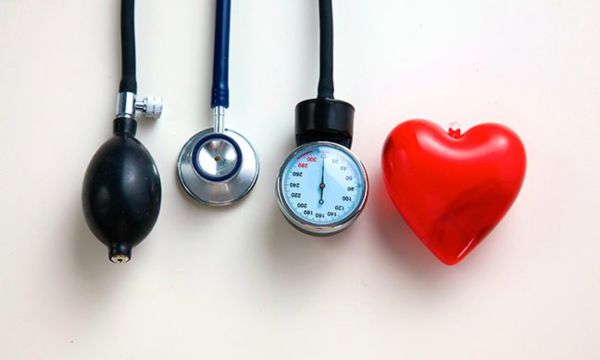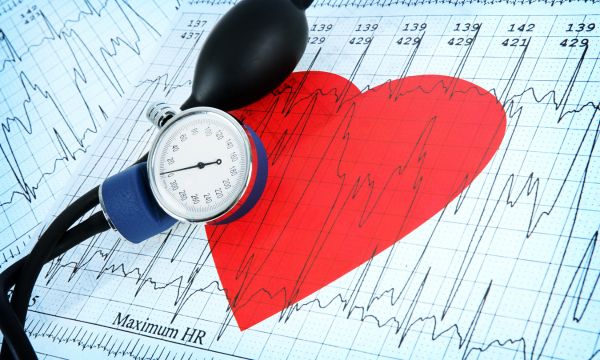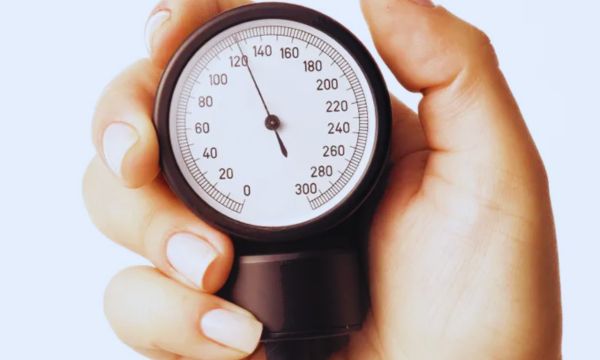Understand What Blood Pressure is and Why we Need to Control it
ad
Understand what blood pressure is and why we need to control it: explore and its vital role in maintaining overall health. Learn why controlling it is essential. Good reading!
Much has been said recently about blood pressure, and it’s no wonder. Hypertension has been considered one of the leading causes of death in the world.
Blood pressure (BP) fulfills the function of pumping blood from the heart to the other organs of the body, which circulates through the arteries. When the heart contracts (systole), it injects approximately 70 ml of blood into the arterial system. When dilating (diastole) this pressure decreases. For this reason there are two blood pressure values: systolic which is the maximum and diastolic which is the minimum.
We also have that arteries are contractile organs, which makes it contribute to determine higher or lower values of pressure. These values can be affected by the elasticity of the arteries, as is the case with arteriosclerosis.
Because it is such an important topic, in this article you can understand a little better what it is and why you need to control it properly. Follow!
The role of blood pressure

Arterial circulation can easily be compared to plumbing, where blood flows through the arteries, the heart is the pump, and a difference in pressure can occur between the ends of the pipes. In this process, the heart is primarily responsible for pumping blood, and this happens with each beat. However, this body is not solely responsible for creating this pressure, there are other factors involved in the process.
The contraction of arteries can also affect blood pressure. Therefore, even though the heart is one of the main players in this process, the elastic properties of the arteries also play a role. Therefore, if they harden and narrow, the pressure can rise, or even completely block the blood supply to different parts of the body. This can lead to very dangerous complications like cardiovascular disease.
Blood pressure measurements

BP is expressed in millimeters of mercury (mmHg). Currently, ideal blood pressure values are 120 x 80 mmHg, which can be abbreviated to 12 x 8. As well as “normal” values can vary between 90 X 60 and 120 X 80 mmHg.
A question many people ask themselves: Which pressure is more important, diastolic or systolic? Recent studies indicate that systolic is the best indicator of health or cardiovascular disease. In people over 50 years of age, doctors pay more attention to systolic pressure, as these patients are at greater risk for arteriosclerosis.
A few years ago it was considered that blood pressure was high when systolic values were above 140 mmHg. However, after studies conducted at the American College of Cardiology and the American Heart Association, these values were reset to a lower limit. From then on, when the patient has a pressure of 130 x 80 mmHg, greater attention should be paid. And there are even those who believe that levels between 120 and 140 should already be considered as pre-high blood pressure, thus being at the discretion of the doctor.
In the case of diastolic, it is considered normal when values are below 80 mmHg. It usually peaks at age 50, then gradually declines with age. However, it is worth mentioning that values lower than 60 mmHg may be associated with damage to the heart tissue, since being low can lead to inadequate blood pumping.
High pressure and low pressure

When the patient has frequent high blood pressure values, he is diagnosed with hypertension. This condition often has no symptoms, and the best way to make the proper diagnosis is to measure your blood pressure regularly. Before confirming the diagnosis, two or more distant readings are taken, as the pressure can vary depending on the moment.
There are two main types of high blood pressure: primary high blood pressure and secondary high blood pressure. Primary hypertension is the most common, being chronic and may appear to be a definite cause.
Secondary hypertension, on the other hand, occurs due to the use of some medications or some medical condition, and may be transient. In most cases, it may get better by treating the problem or stopping the medications that are affecting it.
High blood pressure has become one of the main risk factors for cardiovascular disease. In most cases, this disease is hereditary, as well as some factors that can influence it, such as: sedentary lifestyle, diet, lifestyle habits, smoking, lack of physical activity, alcohol consumption, stress, obesity, high sodium (salt) consumption, high cholesterol levels, among others.
Low blood pressure usually does not cause health problems in healthy adults, but there are some cases where it can cause dizziness and fainting, as the brain is not getting enough blood for the body to function properly. Often, the cause of this is not necessarily due to some disease, it can be because of family history. Or even, it may appear due to the side effects of certain medications.
Conclusion
In conclusion, understanding the importance of blood pressure and its values is essential to preserve cardiovascular health and overall well-being. Hypertension, an increasingly common issue, demands special attention as it is directly linked to a higher risk of cardiovascular diseases. Therefore, regularly monitoring blood pressure, adopting a healthy lifestyle, including a balanced diet and physical activity, and avoiding risk factors such as smoking and excessive sodium intake are fundamental measures.
Similarly, low blood pressure, though less common, deserves attention, especially if it causes symptoms like dizziness or fainting. In some cases, the cause may be genetic or medication-related, underscoring the importance of discussing any concerns with a healthcare professional.
Ultimately, maintaining a healthy blood pressure balance is one of the keys to a long and active life. Awareness of ideal values, coupled with healthy lifestyle habits and proper medical supervision, can significantly contribute to a more positive health journey. Always remember that prevention is the best medicine, and taking care of your blood pressure is an important step in that direction.

Frequently Asked Questions about Blood Pressure
What is blood pressure?
Blood pressure (BP) is the force exerted by blood against the walls of arteries as it is pumped by the heart and circulates throughout the body. It is vital for the proper functioning of the circulatory system.
What are the ideal blood pressure values?
Ideal blood pressure values are typically considered to be around 120/80 mmHg. This can be abbreviated as “12 over 8.” However, normal values can range from 90/60 to 120/80 mmHg.
What is the difference between systolic and diastolic blood pressure?
Systolic blood pressure (the first measurement) represents the pressure in the arteries when the heart is contracting (systole) and pumping blood. Diastolic blood pressure (the second measurement) is the pressure in the arteries when the heart is relaxing (diastole) between heartbeats.
What is the importance of blood pressure?
Blood pressure plays a crucial role in blood circulation, delivering oxygen and nutrients throughout the body. Maintaining blood pressure within healthy limits is essential for cardiovascular health.
What is hypertension?
Hypertension, or high blood pressure, is a condition in which blood pressure levels are consistently elevated. It is a significant risk factor for cardiovascular diseases.
How is hypertension diagnosed?
Hypertension is diagnosed by measuring blood pressure in medical offices or at home using a blood pressure monitor. It is essential to take multiple measurements over time for an accurate diagnosis.
What are the risk factors for hypertension?
Several factors can contribute to hypertension, including a family history, lifestyle factors (such as diet and physical activity), smoking, excessive sodium consumption, and stress.
What is hypotension?
Hypotension, or low blood pressure, occurs when blood pressure levels are lower than normal and may cause dizziness or fainting. It can be caused by various factors, including genetic factors and medications.
How can I monitor my blood pressure at home?
You can monitor your blood pressure at home using a digital blood pressure monitor. It is important to follow your doctor’s guidelines and keep a record of readings.
What is the importance of medical check-ups?
Regularly consulting a doctor is essential for monitoring your blood pressure, discussing concerns, and developing a personalized health plan. Medical check-ups are fundamental for a preventive approach to cardiovascular health.
Be sure to check out our article: Online Pregnancy Test: Symptoms and Information. You’ll be surprised at how it will help you clarify doubts on the subject. Additionally, we have a variety of engaging topics to share. Explore right now!
 Postpartum Care: 6 Amazing Tips for Future Moms
Postpartum Care: 6 Amazing Tips for Future Moms
ad The arrival of your baby is a magical moment, a dream come true, but the postpartum […]
More Gestational Diabetes Diet: Care for Your Health and Your Baby
Gestational Diabetes Diet: Care for Your Health and Your Baby
ad Discover the secret of a gestational diabetes diet that can transform your pregnancy into a journey […]
More Baby’s Skin: Essential Care Guide
Baby’s Skin: Essential Care Guide
ad A baby’s skin is extremely delicate and requires special care. As a first-time mother, you may […]
More